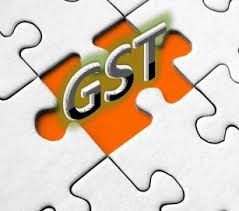Concept of manufacture will be replaced by value added which is numerically measureable and is not controversial
 I found during my interaction with traders and manufacturers that they are essentially interested to know about the structure of Goods and Services Tax and the benefits that are likely to come to them.
I found during my interaction with traders and manufacturers that they are essentially interested to know about the structure of Goods and Services Tax and the benefits that are likely to come to them.
The benefits are common in many cases, but are also different in some other respects. I propose to discuss these specific aspects in this article.
The advantages for manufacturers and traders are the following:
- One tax: The common base for charging GST for Centre and the state will consist of an amalgamation (subsuming) of several central taxes and state taxes which will enable them to give one tax rather than giving about 16 taxes.
- Common market: There will be a common market in the absence of CST and entry tax. At present, goods are being sold mostly within the state in order to avoid paying the CST which is not credited at the stage of manufacture or in course of trading. Good quality products being manufactured in one part of the country will find more market in the farthest part of the country because there will be no CST and no entry tax
- Distinction between goods and services will go: In some cases, there is a distinction between goods and services when they are sold as a package. These controversies will go.
- Invoicing will be simpler: At present, the invoices are more detailed since taxes on goods and services are written separately for one transaction. With the introduction of GST only one rate will be written.
- No entry tax: The Economist November 8, 2014 has reported (page 67) that India’s long distance truckers are parked 60 per cent of the time. This also leads to delaying of delivery of goods at destinations. The abolition of entry tax will be a great boon for the movement of goods by road transport.
- Common exemptions between Centre and states: Now the exemptions given by the Centre and the states being different, the final price becomes different in different states. In the GST regime, exemptions will be common between the Centre and the states which will make the rates of duty same all over India.
- Big central excise tariff will go: I will be the happiest to see when this big and fat central excise tariff goes away. It has got eight digit classifications like 44079990, 76069110. They attract different rates many times. All these will be replaced by one rate. What a relief!
- Concept of manufacture will go: Manufacture is a highly complicated concept. It is defined mostly by judgements of Supreme Court and high courts. It is a den of controversy. The concept of manufacture will be replaced by the concept of value added which is numerically measureable and is not controversial.
- Classification controversies will go: Now, classification controversies are galore since there are so many rates of duty. This problem will also go if the exemptions are limited.
- Problem of identification will go: At present, identifying a commodity like whether it is rubber or resin, paper or board, ash, or dross dominate the proceedings since rates of duty are different. These controversies will be over.
- Undue enrichment law will go: At present, there is a law in central excise and service tax which provide for refusing refund of higher duty paid in case the burden of higher rate of tax imposed already has not been passed on to the consumer. This is a highly litigated law which will necessarily have to go because GST will be a combination of so many taxes apart from these two taxes. And these taxes do not have the same provision. Moreover, if the unjust enrichment of law is made to apply to GST as a whole, the purpose of seamless movement of goods and services will be defeated.
- Zero rating will be more comprehensive and more easy: Even without GST, zero rating (giving relief for the input duty) is possible, but it does not give relief for some of the duties. With GST, zero rating will be more comprehensive.
Conclusion: All this is true if GST is made in an ideal manner with one rate and covers all goods and services with minimum exemptions.

.jpg)









